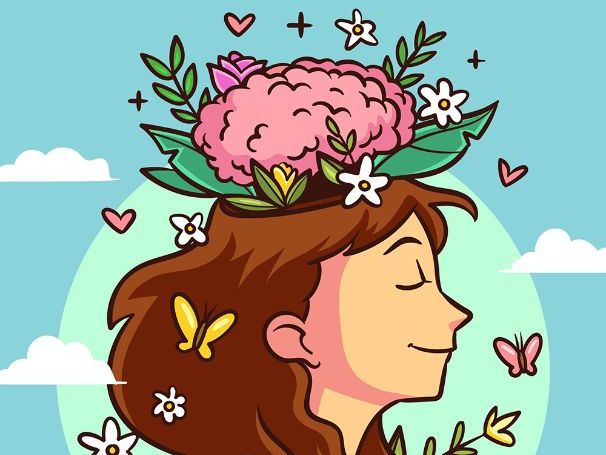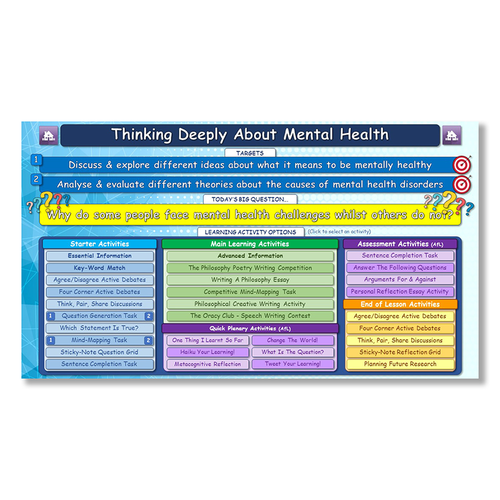

















This multi-use interactive philosophy lesson explores ‘Philosophy of Mental Health’: an interdisciplinary field of study that combines views and methods from the philosophy of mind, psychology, neuroscience, and moral philosophy in order to analyse the nature of mental illness. We’ve aimed to combine philosophical issues with practical ‘PSHE’ topics to create a fascinating philosophy teaching resource that will help your students to explore the topic of mental health whilst emphasising critical-thinking skills and challenging assumptions.
This session is ideal for teachers who want to explore philosophy with students aged 8-16; we’ve carefully selected the most significant issues and questions relating to philosophy of mental health so that young learners can engage in fun and useful philosophical discussions and debates. This session explores topics such as:
- The nature of the mental illness
- Different theories as to the fundamental causes of mental illness
- How lifestyle choices can promote good mental health
- How to respond to mental health challenges in ourselves and others
- The role of society and culture in the genesis of mental illness
The big question asked in this session is “Why do some people face mental health challenges whilst others do not?”. Using a variety of engaging activities students will discuss and debate a wide range of other philosophical questions such as
- To what extent is mental illness similar to physical illness?
- What are the primary causes of mental health challenges?
- What is the best way to treat a mental illness?
- What are some ways in which people can manage and reduce the amount of stress they have in their lives?
- To what extent should people rely on medication to help manage and treat mental health conditions? and
- How can lifestyle choices impact the likelihood that we develop mental health problems?
This resource is suitable for teachers of all school subjects who are looking explore the topic of mental health and mental illness with young people: it is of particular relevant to Psychology Teachers and PSHE Teachers and PSHE Co-ordinators.
This session uses our unique format for philosophy teaching resources and features an integrated menu that allows teachers to select from a variety of starter, main, plenary, assessment and end-of-lesson reflection activities. With a massive selection of activities designed to trigger philosophical discussions, debates and reflections: you can re-use the resource numerous times with the same group. Aside from a wide range of debate and discussion activities, teachers can also choose from a variety of more substantial activities such as essay writing, poetry writing, and speech writing tasks.
Something went wrong, please try again later.
This resource hasn't been reviewed yet
To ensure quality for our reviews, only customers who have purchased this resource can review it
Report this resourceto let us know if it violates our terms and conditions.
Our customer service team will review your report and will be in touch.